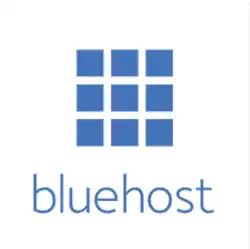How to Flush DNS Cache (Windows, Mac, Chrome)
Check Out More At: Kinsta
WordPress: Best WordPress Plugins | WordPress Tutorials
How to Flush DNS Cache (Windows, Mac, Chrome)
| Product Image | Product Name / Primary Rating / Price | Primary Button / Description |
|---|---|---|
|
|
|
|
|
|
|
|
|
|
|
|
|
|
Elementor is an amazing website builder plugin for WordPress. Elementor makes it easy to create beautiful and high converting websites yourself without having to learn code.
Gravity Forms is a WordPress plugin that creates powerful forms quickly and easily, with drag-and-drop fields, custom notifications and confirmations, and custom styling capability.
Kadence Theme is a powerful, intuitive and flexible WordPress theme that offers an expansive set of features and customization options.
It includes a robust page builder, beautiful design options, mobile-friendly responsiveness, powerful SEO tools and optimized performance for faster loading times.
It's perfect for creating stunning websites without needing to write any code.
Cloudways is a managed cloud hosting platform that simplifies cloud infrastructure deployment and management.
It provides an intuitive dashboard, automated backups and optimized stack for speedy performance. It also provides 24x7 support with multiple server locations, enabling businesses to host their applications quickly and securely.
If you’re having trouble connecting to a website, one thing you can try is to flush your DNS cache. DNS is short for Domain Name System, and it’s a directory of mappings between website names and their underlying IP addresses. When you type a website’s name into your browser, your computer contacts its DNS server and looks up the IP address for that site. DNS servers usually have a cache of recent lookups, so that future requests for the same website can be resolved more quickly. But sometimes the cache can get outdated, which can cause connection problems. Flushing your DNS cache can clear out any old entries and help resolve any connection issues you’re having. Here’s how to do it on Windows, Mac, and Chrome.
On Windows, you can flush your DNS cache by opening the Command Prompt and typing “ipconfig /flushdns”. Press Enter, and you’ll see a message that says “Successfully flushed the DNS Resolver Cache”.
On a Mac, the process is similar. Open the Terminal and type “dscacheutil -flushcache”. Again, you’ll see a message that says the DNS cache was flushed successfully.
Flushing your DNS cache in Chrome is a little different. First, open Chrome and type “chrome://net-internals/#dns” into the address bar. This will take you to the DNS page in Chrome’s settings. Next to “Clear host cache”, click the button that says “Clear cache”. You should see a message that says “Host resolver cache was cleared”.





